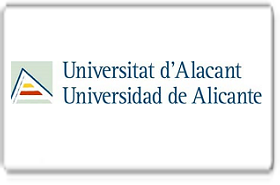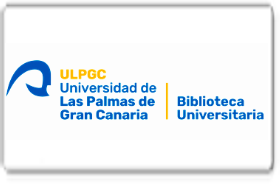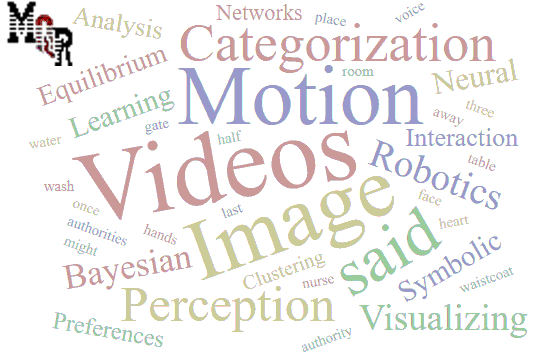Percepción de los estudiantes sobre el uso de Zoom en las clases de inglés como lengua extranjera
EFL learners' views on the online classes' use of Zoom
DOI:
https://doi.org/10.56048/MQR20225.7.4.2023.2343-2355Palabras clave:
Educación; Aplicación de zoom; Innovación; InternetResumen
La pandemia COVID-19 ha tenido un impacto en muchas industrias, pero principalmente en el campo educativo. La educación se llevó a cabo de forma remota a causa del COVID-19, utilizando algunas aplicaciones, como Zoom. Esta investigación tuvo como objetivo analizar las opiniones de un grupo de estudiantes de inglés como lengua extranjera en una escuela secundaria sobre la aplicación Zoom utilizada en las clases en línea. Se trata de un estudio transversal en el que se eligieron enfoques cualitativos y cuantitativos para este estudio. Se utilizaron entrevistas y cuestionarios para reunir los datos y la población estaba integrada por 28 estudiantes. Para obtener los resultados de la investigación, se analizaron la entrevista y los cuestionarios que permitieron conocer la percepción de los estudiantes sobre el uso de la aplicación Zoom en las clases de inglés y la entrevista ayudó a identificar los desafíos que enfrentaron los estudiantes en las clases de Zoom. Ambos resultados mostraron que el internet es un factor importante para el progreso de la clase, sin embargo existen factores externos, que son distractores y que pueden limitar el proceso de aprendizaje.
Abstract
The COVID-19 pandemic has had an impact on many industries, but mainly on the educational field. Education was carried out remotely due to COVID-19, using some applications, such as Zoom. This research aimed to analyze the opinions of a group of students of English as a Foreign Language in a secondary school about the Zoom application used in online classes. This is a cross-sectional study where qualitative and quantitative methods were used to acquire the information. Interviews and questionnaires were used to gather the data. The population consisted of 28 students. To obtain the results of the research, the interview script was analyzed which allowed us to know the students' perception about the use of Zoom application in English classes and with respect to the interview helped identify the challenges faced by the students in Zoom classes. Both results showed that the internet is an important factor for class progress, however there are external factors, which are distracting and can limit the learning process.
Keywords: Education; Zoom application; Innovation; Internet
Descargas
Métricas
Cited
DOI: 10.56048![]()
Citas
Andrea Rakushin Lee(2021) Breaking through Digital Barriers: Exploring EFL Students’ Views of Zoom Breakout Room Experiences. KOREAN JOURNAL OF ENGLISH LANGUAGE AND LINGUISTICS, 510-524.
Adelina Ramadani(2020) Teachers’ Experiences With Online Teaching Using The Zoom Platform With Efl Teachers In High Schools In Kumanova. SEEU Review(Challenges and Perspectives of Covid – 19)142-155.
AlHazizi, O. (2020, September 27).The problem of Blackboard and the slowness of the Internet troubled university students. Alyoum Newspaper,17271. Retrieved from https://lym.news/a/6279509.
Creamer Guillén, M. M. (2020, March 12). ACUERDO Nro. MINEDUC-MINEDUC-2020-00014-A [Ministerial Agreement]. Ministerio de Educación. https://www.uejuliomariamatovelle-quito.edu.ec/wp-content/uploads/2020/03/MINEDUC-MINEDUC-2020-00014-A.pdf
Carrascal Domínguez, S., de Vicente, A. M. y Sierra Sánchez, J. (2020). Transformación e innovación educativa durante la crisis del COVID-19. Estilos y modelos de enseñanza y aprendizaje. Revista de Estilos de Aprendizaje, 13, 1-4
Chandler, K. 2016. Using breakout rooms in synchronous online tutorials. Journal of Perspectives in Applied Academic Practice 4(3), 16-23. doi: 10.14297/jpaap.v4i3.216
Cutter, M. (2015). Using technology with English Language Learners in the classroom.
Francisco, C. (2020). Effectiveness of an online classroom for flexible learning. International Journal of Academic Multidisciplinary Research (IJAMR), 4(8), 100-107.
Fainholc, B. (2020). El ZOOM y la educación. Un abordaje desde lo comunicacional, social y pedagógico. DIM: Didáctica, Innovación y Multimedia, 39, 1–12
Hernández Sampieri, R., Fernández Collado, C., & Baptista Lucio, P. (2014). Metodología de la investigación (6a. ed. --.). México D.F.: McGraw-Hill.
Kim, H. (2020). The efficacy of Zoom technology as an educational tool for English reading comprehension achievement in EFL classroom. International Journal of Advanced Culture Technology (IJACT), 8(3), 198-205.
Kohnke, L., & Moorhouse, B. L. (2022). Facilitating Synchronous Online Language Learning through Zoom. RELC Journal, 53(1), 296-301. https://doi.org/10.1177/0033688220937235
Lee, A. R. (2021). Breaking through digital barriers: Exploring EFL students’ views of Zoom breakout room experiences. Korean Journal of English Language and Linguistics, 21(1), 510-524.
Moorhouse BL, Kohnke L (2020) Using Mentimeter to elicit student responses in the EAP/ESP classroom. RELC Journal 51(1): 198–204.
Mohamed, K. 2021. The impact of utilizing breakout rooms in ESL distance learning from students’ perspectives [Unpublished manuscript]. Faculty of Education, British University in Dubai.
Nuraziza, N., Oktaviani, L., & Sari, F. M. (2021). EFL Learners’ Perceptions of ZOOM Application in the Online Classes. Jambura Journal of English Teaching and Literature
Ode, E. O. (2014). Impact of Audio-Visual (AVs) Resources on Teaching and Learning in Some Selected Private Secondary Schools in Makurdi. IMPACT: International Journal of Research in Humanities, Arts, and Literature (IMPACT: IJRHAL), 2(5), 195-202.
Ochonogor, C., O. Alakpodia and E. Achugbue. 2012. The impact of text slang (Tms) or chartoom slang on students’ academic performance. International Journal of Internet of Things 1(2), 1-14. doi: 10.5923/j. ijit.20120102.01
Purwati, D., & Khairunisa, K. (2022). EFL Students’ Perceptions of Online Learning using Zoom During Covid-19 Pandemic: A Case Study. Ainara Journal (Jurnal Penelitian Dan PKM Bidang Ilmu Pendidikan), 3(3), 180-185.
Souhila, B. (2021). Zoom Sessions in Distant Learning: Algerian EFL Students’ Perceptions and Attitudes. Arab World English Journal (AWEJ) Special Issue on Covid, 19.
Villegas Oña, J. K., & Caceres Cacoango, C. E. (2022). THE TECHNOLOGICAL TOOLS USED BY TEACHERS IN VIRTUAL MODALITY FOR THE TEACHING-LEARNING PROCESS IN ENGLISH LANGUAGE (Bachelor's thesis, Ecuador: Pujilí: Universidad Técnica de Cotopaxi (UTC).
Publicado
Cómo citar
Número
Sección
Categorías
Licencia

Esta obra está bajo una licencia internacional Creative Commons Atribución 4.0.
Los autores se comprometen a respetar la información académica de otros autores, y a ceder los derechos de autor a la Revista MQRInvestigar, para que el artículo pueda ser editado, publicado y distribuido. El contenido de los artículos científicos y de las publicaciones que aparecen en la revista es responsabilidad exclusiva de sus autores. La distribución de los artículos publicados se realiza bajo una licencia 
































































































